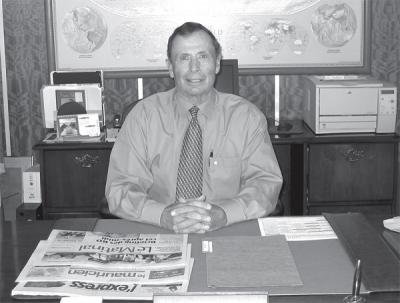Not many U.S. ambassadors to Mauritius write books about their experiences serving the United States in the Indian Ocean region. But former ambassador John Price has filled 600 pages with interesting and often surprising anecdotes and observations about his time representing U.S. interests in Mauritius, Seychelles and Comoros from 2002-2005, and more generally about what he sees as the future for sub-Saharan Africa. Published by the University of Utah Press in 2011, When the White House Calls offers a view of the daily duties of an ambassador, including details of official meetings with Mauritius officials and constant communiqués with Washington, and other intricacies of diplomacy. He speaks candidly about his dealings with government leaders and about the shortcomings of U.S. policy in the region. Born Hans Joachim Praiss in Spandau Germany, Price also tells his personal story as the son of Jewish immigrants who fled Nazi Germany in 1933, and as a successful real estate developer in Utah. A wealthy businessman, he was involved in Republican politics in Utah and was a financial backer of former President George W. Bush, who selected him as ambassador to Mauritius. Throughout the book, Price expresses concern about the growth of radical Islam, and he admonishes the United States for turning a blind eye to these serious and destabilizing developments.
« In all three countries, I witnessed an increase both in radical Islamist attitudes and in negative rhetoric about our country, » the ambassador wrote, adding that the United States should increase, not diminish, its presence in the region.
« For radical jihadists such as Fazul Abdullah Mohammed, this region has become a sanctuary, » he continued. « Born in Comoros, Fazul has been identified as the mastermind responsible for U.S. embassy bombings, suicide attacks and surface-to-air missile attacks. Fazul has also been implicated in efforts to smuggle and sell « blood diamonds » from Sierra Leone, the proceeds of which are believed to have been a major source of funding for the 9/11 attacks. »
During his time in Mauritius, Price was involved in organizing the first forum held under the African Growth and Opportunity Act (AGOA) in 2002, in closing down factories producing counterfeit Ralph Lauren clothing, and defending President Bush’s decision to launch a war against Iraq.
More specifically he said:
– After the U.S. announcement of military action in Iraq, the embassy in Port Louis received threatening letters and two bomb threats. Threats also clouded preparations of the AGOA Forum, including those against Christian churches and government buildings in Mauritius. The U.S. embassy received reports of possible disruptions to the AGOA Forum and to the planned visit by President Bush.
– Many U.S. missions worldwide were closed in the 1990s due to budget cuts, including those in the Seychelles and Comoros. « The impression I got was that the U.S. government felt we did not need embassies in countries we considered benign. To me, this signaled that radical Islam could move in while we were moving out. »
– Cutbacks also affected the embassy in Port Louis. In the early l990s, he said, the embassy had more than twice as many diplomats as it did in the early 2000s, as well as a full marine guard detachment. The embassy was overloaded with work, covering three countries. « Tensions were high and morale was low. »
– Many Muslim professionals and successful business leaders had become anti-American. « In Mauritius, several government leaders, community leaders and businessmen had taken trips to meet with Palestinian groups and had one-on-one meetings with Yasser Arafat and others with known terrorist backgrounds, » he wrote.
In the following interview, Ambassador Price talks in more detail about his book, and about the three years he spent as a diplomat in Mauritius, Seychelles and Comoros. He continues to follow developments in the Africa region and writes a blog about U.S. policy in Africa. (Note: While serving in Mauritius in 2003, the Utah Supreme Court upheld a nearly $9 million judgment against Price’s real estate firm for cheating two investors in a shopping mall deal. Based partly on this ruling and for his absence from the inauguration of Sir Anerood Jugnauth as president, Le Mauricien called for Price’s resignation, but he retained support of the Bush White House and remained as ambassador.)
FORMER U.S. AMBASSADOR TO MAURITIUS BOOK REVEALS : “Concerns of over rise in radical Islam in Indian Ocean region”
- Publicité -
EN CONTINU ↻


